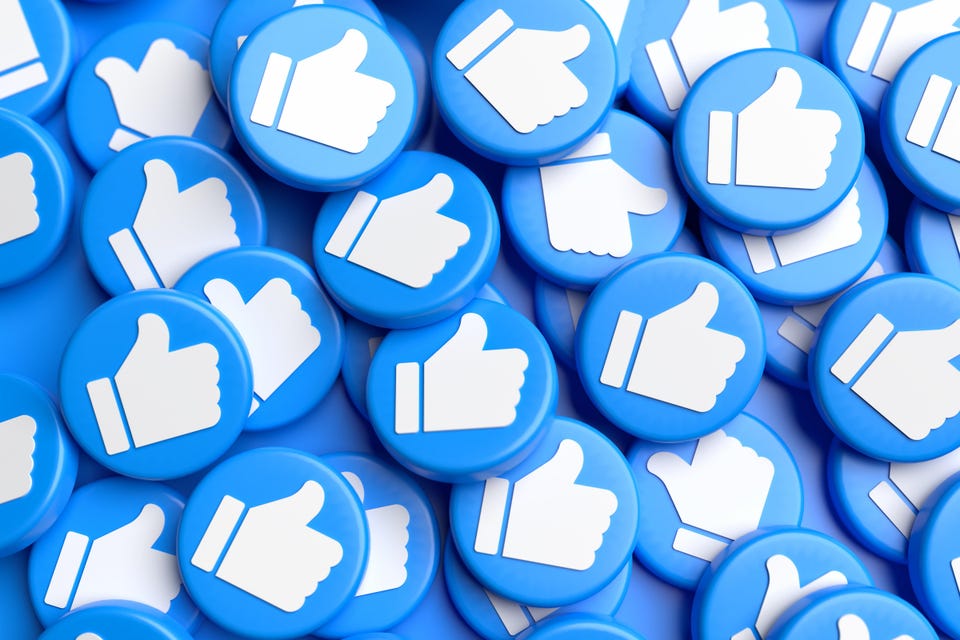Social Media Gen Z Have Cancelled The Thumbs Up Emoji And Here’s Why You Should Worry John Brandon Contributor Opinions expressed by Forbes Contributors are their own. John Brandon covers social media trends. @jmbrandonbb Following New! Follow this author to stay notified about their latest stories.
Got it! Oct 16, 2022, 08:33am EDT | New! Click on the conversation bubble to join the conversation Got it! Share to Facebook Share to Twitter Share to Linkedin Many like buttons with white thumbs up on blue on a heap. Social Media Concept. Full frame.
getty What you say and how you say it is critically important in a business setting. I’m certainly an advocate of using trendy and inspiring words, since that helps us all live in the present age and communicate more effectively. A few years ago, writers like me started using the word “cachet” more and more in online articles and in print, although it has now lost favor (it means “prestige”).
While I’m not saying we should use jargon and catch-phrases, it’s okay to communicate like we’re living in 2022 and not 2002. In some of my writing, I’ll even go back and change some of the words to reflect a more modern mindset, removing outdated terms. And then there’s my rough history with emojis .
Just recently, I started using them in business communication, mostly with colleagues as a way to relay emotion. I was against them because they seemed cheesy and trite, and if there’s one thing I resist in life it’s being cheesy and trite. Then I realized how an emoji can communicate more with one symbol (the literal Japanese translation means “picture character”) than an entire sentence.
I’m extremely late to the emoji party, but I’m here (smiley face). Over the last few months, I’ve learned to throttle how often I use them and still resist the cheesy factor. It’s an entire language you have to learn.
I’ll add a smiley face to every joke with colleagues, and on Microsoft Teams, I’m known to use a variety of emojis to show agreement and alignment. All good so far. What confuses me is that some of the emojis we use have come under fire .
Namely, the one for thumbs up , which is very common on Facebook. According to some new research, several emojis have fallen out of favor with the Gen Z crowd . One Reddit poster claimed an uncomfortableness using the thumbs up emoji , mostly because it seems too abrupt and even rude.
The heart emoji is also verboten . I can understand why the OK hand is probably a little rude, and the poo emoji for sure. MORE FOR YOU Juan Soto Contract Rejection Could Make Orioles A Better Buy Than Nationals How Workers Fared When Moving To Work Remotely During Covid ‘A $28 Trillion Opportunity’—Crypto Braced For A Huge Earthquake As The Price Of Bitcoin, Ethereum, BNB, XRP, Solana, Cardano And Dogecoin Swing It’s ironic, though — especially for someone like me who only recently started using them in business.
(Full disclosure: I have used emojis with my kids and family members before that, but usually with a hint of sarcasm. ) Emojis have become a moving target. The meaning can change, and it’s hard to keep up.
Just when I thought a thumbs up was a confirmation of mutual collaboration and agreement, it turns out the symbol is now considered rude and abrasive. So, why worry about all of this? For starters, I don’t have time to keep track of the emoji lexicon. If the symbols are moving targets, it’s yet another form of communication we have to track, dissect, parse, and comprehend.
As soon as we realize that an emoji like thumbs up is rude or condescending, another emoji will popup that has a second or third meaning. The solution is to avoid these types of proclamations. Emojis should be safe and reliable, not contain any extra hidden meanings or implications.
Feel free to disagree, and if you see a link to this article on social media, go ahead and use thumbs down. I’ll know exactly what you mean. John Brandon Editorial Standards Print Reprints & Permissions.
From: forbes
URL: https://www.forbes.com/sites/johnbbrandon/2022/10/16/gen-z-have-canceled-the-thumbs-up-emoji-and-heres-why-we-should-worry/
